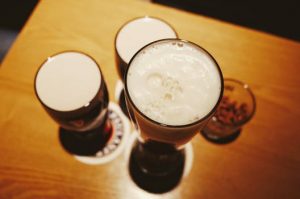Staying Sober After Detox to Prevent Relapse In The Future
After successfully completing a sobriety program to recover from addiction, the act of a single relapse can still claim victim to anyone who experienced even the most promising of rehabilitation. A substance addiction is usually regarded by health experts as severe as a chronic brain disease, since it closely correlates with stress levels, a person’s daily mental health, physical behavior, and an inability to control or easily stop the self-destructive behavior.. Recent studies from the National Institute on Drug Abuse state that this rates of relapse from addiction matches the rates of relapsing with other threatening diseases like asthma, hypertension, and even type I diabetes. That’s a statistic that no one should ignore, so it’s crucial that all rehab clients are given the information and advice they need to strengthen their relapse prevention coping skills.

Why We Become Addicted
If someone is addicted to an intense mind-altering substance, the process in which their brain functions is indefinitely disrupted by the repeated alcohol or drug abuse. Those pathways hold the neural power that dictates how a person can feel pleasure or happiness towards rewards, manage their impulse control, have ample memory, and establish decision-making. All of these neural pathways are shifted from enough exposure to the substances over time. Our bodies can establish a strong physical dependency that negatively leads someone’s mental health down a dark path. That urge to keep taking the substance can cause plenty of stress on the body, alongside painful and uncomfortable withdrawal symptoms or other common side effects. This leads to an addict to potentially create a cycle of drug abuse as they consume more drugs in an effort to alleviate the withdrawal symptoms, leading down to a path of harmful self-medication that ultimately sparks harsher consequences down the road.
You Can Fight the Cycle of Relapse
Staying sober after detox and experiencing relapse can become a vicious cycle of constantly battling withdrawal symptoms and stress, as well as the guilt and shame associated with relapsing. For any former addict, preventing relapse can be incredibly hard, and it’s often considered as a common aspect of the disease of addiction.
However, having a hiccup in the recovery progress signifies that developing better techniques to stop or avoid those relapse triggers is key.
Avoiding Widespread Relapse Triggers
For a person who is coming from a place of addiction and experiencing recovery, the best method to prevent relapse in the future is to map out any individual triggers. This includes creating a step by step plan on how to recognize them and manage cravings if a trigger is encountered.
While some common relapse triggers are obvious to the untrained eye, others can fall in a vague category that makes staying sober after detox hard for any beginner. Many relapse triggers are broken down into categories that affect the emotional, mental, or environmental aspect of a person’s overall life. Experts use HALT as an acronym to describe the most common high-risk situations for experiencing relapse for people going through substance abuse recovery.
To safeguard your recovery, ensure you avoid becoming too hungry, angry, lonely, or tired throughout the day. This prevents intense emotions from triggering an urge for release and can be done by planning meals in advance, sticking to a strict daily sleep schedule, and aiming to practice mindfulness as well.
Another common root of the problem of relapse is a reluctance to reach out to others for support and exploring different interests outside of engaging in addictive substances. The more a person becomes socially isolated, the easier it is to rationalize drug or alcohol when they are caught by themselves. This is an example of why people have sponsors in AA programs; should they feel like they are about to relapse, they know they can reach out to their sponsor who can help them talk about and fight their cravings.
Social anxiety plays into this feeling which can make relapse a real struggle to deal with. To help with this feeling, having a supportive friend, joining a local sports team, arts or music class, or any type of group in the community that encourages holistic activities is truly rewarding.
Lastly, one of the most harmful triggers is putting oneself in social situations where drugs and alcohol are not only popular but also widely available.
In order to build stronger relapse prevention and coping skills, sit down with someone you genuinely trust and make a list of the people, locations, or activities that draw back memories of the lifestyle that once included frequent substance abuse. Make sure to include the certain sounds, scents, or visuals as well that are best to keep away from your home to make recovery more foolproof.
Moving Forward
Having a relapse is difficult, but it’s not the end of the world if you or someone you care about experiences it. Experiencing a relapse after completing treatment does not mean that it completely failed.
Seek expert resources that can provide customized care and supportive insight for preventing triggers down the line.
Take the necessary steps to reduce the severity and duration of the episode. Make sure you lay out the thought process you experience during a relapse to better realize how to stay substance free. If you consider yourself someone struggling to overcome your addiction, consider the holistic therapy approach to naturally get over your withdrawal symptoms. While it may sound complicated at first, there’s many methods that are simple to practice holistic therapy and recognize triggers.
Onetip is to set time aside throughout the day to exercise mindfulness and meditate on the present moment. Because we are constantly infiltrated by technology and being forced to be on the go throughout the day, taking a short break can help fill our mind with ease and address our psychological health.
Another method for mindfulness is by learning yoga or another relaxing physical activity, as it combines the body and mind to focus while building flexibility. Exercise itself can be considered a holistic therapy.
In combination with holistic therapies, your mental and physical health can become stronger with the help of online relapse prevention resources. Don’t be afraid to seek help to get the results you want!

